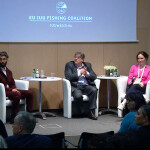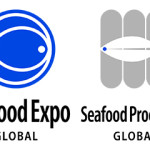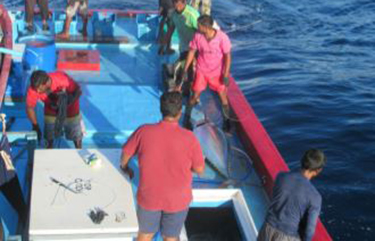The International Pole and Line Foundation (IPNLF) has signed a five-year memorandum of understanding with the Maldives Seafood Processors and Exporters Association (MSPEA) defining long-term objectives between the two parties on joint sustainability initiatives.
The agreement, which was ratified in Malé, Republic of Maldives, outlines “a dynamic, collaborative commitment to support the local tuna sector,” IPNLF and MSPEA said in a press release. Ultimately, the commitment sets out to improve the livelihoods of fisheries’ communities in the Maldives, as well as ensure that the region remains at the forefront of the global one-by-one tuna supply.
Working together, IPNLF and MSPEA will continue to study the social and economic contributions of the Maldives one-by-one fisheries, which are comprised 100 percent of locally-owned fishing operations that engage in traditional practices.
“The Maldives is widely considered the home of pole-and-line tuna, and so the signing of this MOU is a very important step for all those connected locally and internationally to these fisheries. By working much closer together, IPNLF and MSPEA intend to further advance all the good work that has already been done. We want to continue to build a stronger and more commercially competitive Maldivian one-by-one tuna sector, thereby ensuring that it is better positioned to meet the future needs of the many dependent coastal communities, as well as the ever-growing demands of consumer markets,” IPNLF Managing Director Martin Purves said.
The agreement prioritizes the further improvement of traceability and transparency of one-by-one tuna harvests using new tools and technologies already available or that will come available in the near future, IPNLF and MSPEA said.
A registered charity representing a number of major Maldivian tuna processing companies, MSPEA holds a Marine Stewardship Council (MSC) certificate for the Maldives pole-and-line skipjack tuna fishery. The certificate, which is currently in its second five-year cycle, will be another focus of the agreement MSPEA now has with IPNLF.
“The two parties have agreed to focus on the maintenance of the MSC certification achieved by the Maldives’ tuna fisheries and any fishery improvement plans connected to this certification. This close relationship will also help facilitate continued compliance of the Maldives with the Indian Ocean Tuna Commission (IOTC) requirements and help to promote the Maldivian tuna fishery globally,” according to the MSPEA/IPNLF joint press release.
MSPEA will coordinate with the Maldives government to obtain any permits or support required to implement the agreed activities in accordance with government rules and regulations, MSPEA President Umar Jamaal said.
“There is so much that the Maldives needs to do to promote and protect this unique fishery. Attending the recent IOTC Commission meeting in Hyderabad opened my eyes to a number of crucial issues; most notably, key stocks are overexploited and the use of drifting fish aggregating device (dFAD) on the high seas is not effectively regulated or monitored, leading to high juvenile tuna catches in the purse seine dFAD fishery. It was also obvious that the G16 Group of Indian Ocean Coastal States need to work together before it is too late. It is time the Maldives and other coastal states claim their rightful place in the Indian Ocean tuna fishery,” Jamaal said.
The agreement stipulates the following:
- Support activities that will ensure an improved understanding of the social and economic conditions of the fishery and fishing communities to help develop and formulate fishery development policies and management plans
- Develop and improve fishery data collection, compilation and reporting systems to meet and exceed the standards required for IOTC reporting
- Improve the monitoring of the livebait fishery data collection by educating the fishermen on best-practice live-bait fishing methods and improving routine collection of livebait data
- Facilitate bycatch and catch monitoring through an agreed observer program and help improve the Regional Observer Program of the IOTC
- Facilitate the formulation and implementation of fishery improvement projects (FIPs)
- Support the G16 Group of Like-Minded Coastal States of the Indian Ocean in improving their engagement with the IOTC
IPNLF and MSPEA share office facilities in Malé, they confirmed.
Photo courtesy of IPNLF







